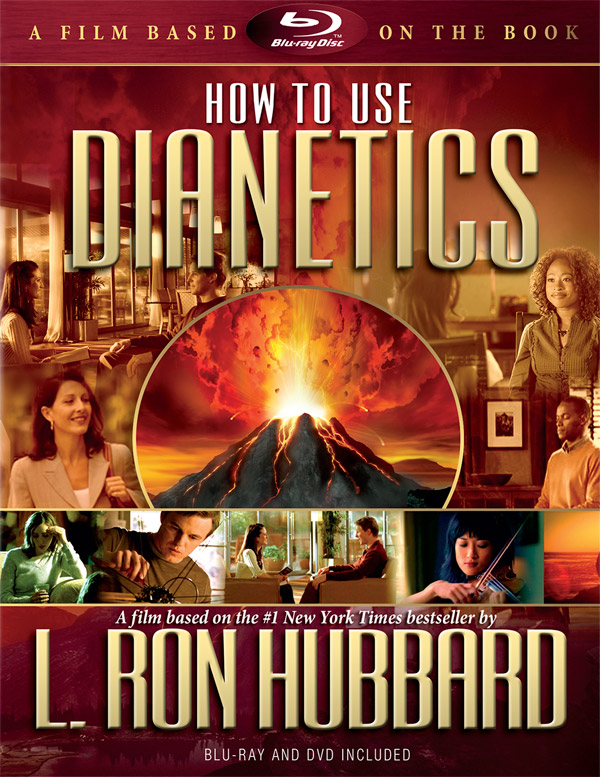Our Dianetics Statements
Table of ContentsGetting The Dianetics To WorkDianetics Can Be Fun For AnyoneSome Known Incorrect Statements About Dianetics The 3-Minute Rule for Dianetics
I couldn't ever not intend to obtain anything that enters your mind for you- if it was otherwise, I would not be sitting here with you, doing this. I not just could never have a trouble, or otherwise wish to hear something that comes to mind for you, yet I'm entirely anxious to understand every idea, every thought, every picture or feeling that arises or manifests for you- don't ever before believe otherwise, and if somehow you do, please simply let me recognize! Sometimes, you might have an idea, and image, concept or case turn up that does not seem to answer the concern, or associate with it, but nevertheless, always do tell me concerning it, and as we proceed, the relevance will certainly arise for you.This is intrinsic in the basis of handling, and the subject of this discussion: the standard roles of the therapist and the client: The fundamental function of the counselor is, in contrast to "conventional training", not to manage, which implies to enforce and/or hinder, but to instead function from the basis of EMPOWERING THE CLIENT.

8 Simple Techniques For Dianetics
John Mcmasters expressed this basic reality splendidly well in among his lectures on Power processing, wherein he describes how he was asked what this "special knack" was that he had for providing such excellent sessions; he needed to consider that for a minute, and identified that it was what he had not been doing, as well as what he was doing: he had not been examining, evaluating, computing, or as a matter of fact, generating any type of thoughts, not to mention spoken expressions, after giving the command and while awaiting the PC to finish their response to their fulfillment; he was, just and just, being existing with the computer, and entirely interested.
The duty of the counselor, showed; that was his "special flair". I have actually had my very own experience which educated me this well, extremely early in the game. In 1982, having actually lately finished my training and internship on New Era Dianetics, I was running this on a PC, and there was a factor in the session where (being a little bit wet behind the ears not yet having numerous hours under my belt as a specialist auditor) the computer appeared to be "taking too lengthy" to share anything vocally after I gave him a command.
This secret became the most useful contribution that John ever before made to the topic of therapy or bookkeeping (Dianetics). In my simple opinion, it is the best contribution that any person has this actually ever before made to these subjectsthe application is totally non-judgemental, non-evaluative, and without any tip, recommendations or opinion.no preconceived agenda for individuals, or 'degrees' that they have to do
In Idenics, the only source of information concerning a client is the private client. In Scientology we prided ourselves on not examining for people. All that actually suggested was that the auditor did not VERBALLY evaluate for the Computer in session. The registrars and principles police officers reviewed for the computer.
Dianetics Can Be Fun For Anyone

Any individual that had ever seen John audit might not assist however see an unique high quality in his auditing."The client's fundamental role is to Visit Your URL be there with the purpose of relocating the instructions of their spiritual objectives, and to easily and fully express and experience whatever shows up for them in responding to the concerns and carrying out the directions in the handling.
This is something to process as required. But also, people regularly have previous experience and/or brainwashing in auditing/processing which, somehow, and to some degrees, in fact misguides them right into mindsets, concepts and habits patterns that avoid the full understanding of these roles, therefore they will tend to inhibit the expressing of what enters your mind, as in the instances offered over. * The first, and possibly leading instances of mis-indoctrination causing much less than entirely smooth and effective sessions, can be located in specific aspects of the training routines, or "TR's":"TR's" are usually a person's initial, or at the very least early, experience in Scientology, and while I will certainly take place to discuss what I see as the flaws in concept and technique, nonetheless, tend to be greatly therapeutic, done as they are given (Hubbard urges that "TR's are not refining, they are educating", however factually, they are both handling AND training)
Alan Walter made similar observations, and enhanced these with his "Existence Processes". There is no "failing", and no rejection of the reality of this being handling. The focus, as it should be, is on experiencing the other person's presence. All the indications which obtain a "flunk" in doing "TR-0" are merely the being's initiatives to stand up to the various other individual's visibility, and as opposed to being harassed and pestered with "Flunk", which enforces "failure!" on the being, one simply needs to be motivated to "stick their feet in the water a little much deeper", to progressively restore their capacity and determination to fully share and experience "being here", or "visibility", with others.
Little Known Facts About Dianetics.
